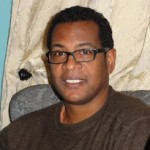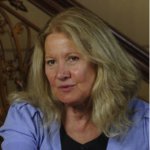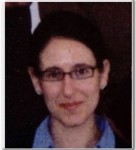Anthony Alessandrini
tonyalessandrini@gmail.com
 Associate Professor of English at Kingsborough Community College
Associate Professor of English at Kingsborough Community College
Anthony Alessandrini is an associate professor of English at Kingsborough Community College, and an affiliate faculty member of the Middle East and Middle Eastern American Center at the CUNY Graduate Center. He was a Mellon Faculty Fellow at the Center for the Humanities at the CUNY Graduate Center in 2008-2009. His work focuses on postcolonial literature and theory and the connection between Middle Eastern literature and culture and postcolonial studies, with a particular focus on the relationship between aesthetics and politics. He is the editor of Frantz Fanon: Critical Perspectives, and has published or forthcoming articles in Arab Studies Journal, Cultural Studies, Diaspora, Foucault Studies, Journal of Arabic Literature, Journal of French and Francophone Philosophy, The Journal of Pan African Studies, Journal of Postcolonial Writing, the minnesota review,andReconstruction, as well as in the anthologies A Companion to Postcolonial Studies, Retrieving the Human: Reading Paul Gilroy, and World Bank Literature. We Must Find Something Different: Frantz Fanon and the Future of Cultural Politicswill be published in 2012. He is a Co-Editor of JadaliyyaEzine, an online publication focusing on the politics and culture of the Middle East.
Herman Bennett
bennett.herman@gmail.com
Professor of History at the CUNY Graduate Center
Herman Bennett is a renowned scholar on the history of the African diaspora, with a particular focus on Latin American history. Through his work, he has called for scholars to broaden the critical inquiry of race and ethnicity in the colonial world. He has written extensively on the presence of African slaves and freedmen in Mexican society during the colonial period and on the consequent interaction between Native Americans, Europeans, and Africans in colonial Mexico. His books include Colonial Blackness: A History of Afro-Mexico (Indiana University Press, 2009) and Africans in Colonial Mexico: Absolutism, Christianity and Afro-Creole Consciousness, 1570–1640 (Indiana University Press, 2003), in which he offers a social historical examination of free Afro-Mexican kinship practices in the mature and late-colonial periods. Bennett has received fellowships from the Institute for Advanced Study at Princeton, the Mellon Foundation, the National Endowment for the Humanities, and the American Council of Learned Societies. He has lectured widely in Europe and the Americas, and comes to the Graduate Center from Rutgers University after starting his scholarly career at Johns Hopkins University. Bennett holds a Ph.D. in Latin American history from Duke University where he was a Mellon Scholar of the Humanities.
Claire Bishop
cbishop@gc.cuny.edu
Professor of Contemporary Art, Theory and Exhibition History at the CUNY Graduate CenterProfessor
Claire Bishop has previously taught in the Curating Contemporary Art department of the Royal College of Art, London, where she continues to be Visiting Professor, and at Warwick University(UK). She is a frequent contributor to Artforum and a research advisor for Former West. Professor Bishop is interested in post-medium specific art since the 1960s (performance art, installation, conceptual art, video, participation) and exhibition history. Recurrent themes in her research are spectatorship and the relationship between art and politics.
Susan Buck-Morss
sbm5@cornell.edu
Distinguished Professor of Political Science at the CUNY Graduate Center
Susan Buck-Morss is Professor of Political Science at CUNY Graduate Center beginning in fall 2010. She has held the Jan Rock Zubrow ’77 Professor of Government at Cornell University as a member of the graduate fields of Comparative Literature, German Studies, History of Art and Visual Studies, and the School of Art, Architecture and Planning. Her books include Hegel, Haiti, and Universal History (Pittsburgh University Press, 2009), Thinking Past Terror: Islamism and Critical Theory on the Left (Verso, 2003), Dreamworld and Catastrophe: The Passing of Mass Utopia in East and West (The MIT Press, 2000); The Dialectics of Seeing: Walter Benjamin and the Arcades Project (MIT Press, 1989); and The Origin of Negative Dialectics: Theodor W. Adorno, Walter Benjamin, and the Critical Theory of the Frankfurt School(Free Press, 1977; 2nd ed., 2002). Photo by: Don Pollard
Kandice Chuh
kchuh@gc.cuny.edu
Professor of English at the CUNY Graduate Center
Kandice Chuh joined the CUNY Graduate Center in 2010 as a professor in the PhD program in English, and as a core member of the Mellon Committee on Globalization and Social Change. With Duncan Faherty (Assoc. Prof, Queens/GC, English), Chuh is also responsible for the Revolutionizing American Studies Initiative launched at the Graduate Center in spring 2011. From 1996-2010, she was a faculty member in the English Department at the University of Maryland, College Park, where she was affiliated to the American Studies Department and the Asian American Studies Program. The author of Imagine Otherwise: on Asian Americanist Critique (2003), which won the American Studies Association’s Lora Romero Book Award, Chuh is the co-editor, with Karen Shimakawa, of Orientations: Mapping Studies in the Asian Diaspora (2001), and has published in such venues as Public Culture, American Literary History, and the Journal of Asian American Studies. Her current book project, The Difference Aesthetics Makes, brings together aesthetic philosophies and theories, minority discourse, and analysis of globalization’s impact on modern sociopolitical subjectivity. Chuh is broadly interested in the relationship between intellectual work and the political sphere; disciplinarity and difference; and U.S. culture and politics as matrices of power and knowledge.
Collette Daiute
cdaiute@gmail.com
Professor of Developmental Psychology at the CUNY Graduate Center
Colette Daiute is Professor of Psychology at the Graduate Center, City University of New York. Dr. Daiute does research on the social and cognitive development of children at risk in the U.S. and in international contexts. Colette Daiute has done research on children’s social conflicts, conflict resolution, children’s development in war and post-war contexts, children’s rights, literacy development, writing, and uses of interactive technology. Working from the perspective of socio-historical activity theory, Dr. Daiute is especially interested in children’s participation in social and intellectual practices as influenced by political and economic factors. Colette Daiute’s recent book publications include Human Development and Political Violence(Cambridge University Press, 2010), International Perspectives on Youth Conflict and Development(Oxford University Press, 2006), Narrative Analysis: Studying the Development of Individuals in Society(Sage Publications, 2004), and The Development of Literacy through Social Interaction(Jossey-Bass, 1993). She has published numerous articles in journals, such as the recent article, “Young people’s stories of conflict and development in post-war Croatia” in Narrative Inquiry, 2005. Dr. Daiute has also worked on the design of numerous programs for vulnerable youth, including violence prevention, literacy, and youth research curricula. She was, for example, the head academic consultant for the television series Ghostwriter. In addition to courses in her areas of research, she teaches and does workshops on narrative psychology, discourse analysis, qualitative research, and methods of inquiry into human development and globalization.

Grace Davie
Grace.Davie@qc.cuny.edu
Associate Professor of History at Queens College
Grace Davie is Associate Professor of History at Queens College. Her Ph.D. is from the University of Michigan. Grace is the author of Poverty Knowledge in South Africa: A Social History of Human Science, 1855-2005 (Cambridge University Press, 2015). She has also published in The Journal of Southern African Studies and Politique Africaine. Although future research and collaborations will surely take Grace back to South Africa, her current project uses interviews to explore one of the major themes in her first book, the making of new scientific fields as a social process animated by freedom movements and labor struggles. With a focus on activist research in postwar America, Grace wants to tell the story of the loose network of civil rights workers, anti-apartheid activists, New Left intellectuals, feminists, and corporate researchers who popularized power-structure analysis, institutional shareholder strategies, and labor union “corporate campaigns.”
Duncan Faherty
duncan.faherty@qc.cuny.edu
Associate Professor of English and American Studies, Queens College and the CUNY Graduate Center
Duncan Faherty is Associate Professor of English at Queens College and The Graduate Center, CUNY, and is also the Coordinator of the American Studies Certificate Program at The Graduate Center. He is also the co-organizer (with Kandice Chuh) of the Revolutionizing American Studies initiative at The Graduate Center. He is the author of Remodeling the Nation: The Architecture of American Identity, 1776-1858 (U of New England P, 2007) and co-editor of the journal Studies in American Fiction. His work has also appeared in such venues as Early American Literature, American Quarterly, and Reviews in American History. His current book project examines the development of the early U.S. novel by focusing on the canonical interregnum of 1800-1820, and rethinking the ways in which these texts interrogate Circum-Atlantic political and economic networks. This project is particularly interested in thinking about how U.S. cultural production indexes wide spread anxieties about the Haitian Revolution as a means of rethinking its own revolutionary legacies. He is also at work on a project about the War of 1812 and narrative temporalities. His research interests include Eighteenth-century American literature; early U.S. literature and culture (1780-1850); American Studies; and circum-Atlantic Studies.
David Joselit
djoselit@gc. cuny.edu
cuny.edu
Distinguished Professor in the Art History at the CUNY Graduate Center
David Joselit is Distinguished Professor in the Art History PhD Program at the CUNY Graduate Center. He has taught at the University of California, Irvine, and Yale University where he was Department Chair from 2006-09. Joselit is author of Infinite Regress: Marcel Duchamp 1910-1941 (MIT, 1998), American Art Since 1945 (Thames and Hudson, 2003), Feedback: Television Against Democracy (MIT, 2007), and After Art (Princeton University Press, 2012). He co-organized the exhibition, ‘‘Painting 2.0: Expression in the Information Age,’’ which opened at the Brandhorst Museum in Munich in 2015. He is an editor of the journal OCTOBER and writes regularly on contemporary art and culture.
djoselit@gc.cuny.edu
Mandana Limbert
mandana.limbert@qc.cuny.edu
Associate Professor of Anthropology at Queens College
Mandana E. Limbert received her PhD in Anthropology and Near Eastern Studies from the University of Michigan in 2002 and joined the Queens College (CUNY) faculty the same year. She became a member of the faculty of the CUNY Graduate Center in 2007. She has also been a fellow and visiting scholar at The University of Michigan’s Institute for Research on Women and Gender (1999-2000), New York University’s Center for Near Eastern Studies (2000-2001), the University of California, Berkeley’s Center for Middle Eastern Studies (2001-2002), and Duke University’s Department of Cultural Anthropology (2008-2010). She joined the History department at North Carolina State University (2009-2010). In addition to numerous articles, Professor Limbert has co-edited “Timely Assets: The Politics of Resources and their Temporalities” (2008), published by the School of American Research, Advanced Seminar Series. Her book, “In the Time of Oil: Piety, Memory, and Social Life in an Omani Town” was published by Stanford University Press (2010). And, with support from the American Council of Learned Societies (2007-2008), Professor Limbert has been writing her next book, “Oman, Zanzibar, and the Politics of Becoming Arab” on changing notions of Arabness in Oman and Zanzibar over the course of the twentieth century.
Uday Singh Mehta
usmehta@amherst.edu
Distinguished Professor of Political Science at the CUNY Graduate Center
Uday Singh Mehta, Distinguished Professor of Political Science at the Graduate Center, is a political theorist whose work encompasses a wide spectrum of philosophical traditions. He has written on the relationship between freedom and imagination, liberalism’s complex link with colonialism and empire, and more recently on war, peace and non-violence. He is the author of two books, The Anxiety of Freedom: Imagination and Individuality in the Political Thought of John Locke (Cornell University Press, 1992), and Liberalism and Empire: Nineteenth Century British Liberal Thought (University of Chicago Press, 1999). He is currently completing a book on war, peace and nonviolence, which focuses on the moral and political thought of M.K. Gandhi. He received his undergraduate education at Swarthmore College, where he studied mathematics and philosophy. He received his Ph.D. in political philosophy from Princeton University. Photo by: Don Pollard
Joan Scott
jws@ias.edu
Professor Emerita in the School of Social Science at the institute for Advanced Study, Professor of History at the Graduate Center, CUNY
Joan Wallach Scott is Professor Emerita in the School of Social Science at the institute for Advanced Study. She is an adjunct professor history in the GC. A historian who works in French history and women’s and gender studies as well as feminist theory, her most recent books are The Politics of the Veil and The Fantasy of Feminist History. A new book, Sex and Secularism, will be published in fall 2017 by Princeton University Press.
Julie Skurski
skurski@umich.edu
Julie Skurski earned her Ph.D. from the University of Chicago in 1993 and came to the Graduate Center in January 2009 from the University of Michigan, where she taught in the departments of anthropology and history, and served as associate director of the doctoral program in anthropology and history. Her interests lie in the subjects of historical anthropology, race, gender, postcolonialism, popular religion, and Latin American, Caribbean, and Atlantic studies. Her books include States of Violence (2005), coedited with Fernando Coronil, and Anthrohistory: Unsettling Knowledge, Questioning Discipline (2011), coedited with Coronil and others.



